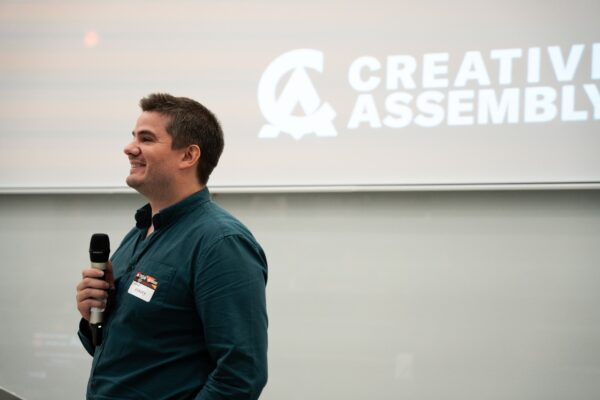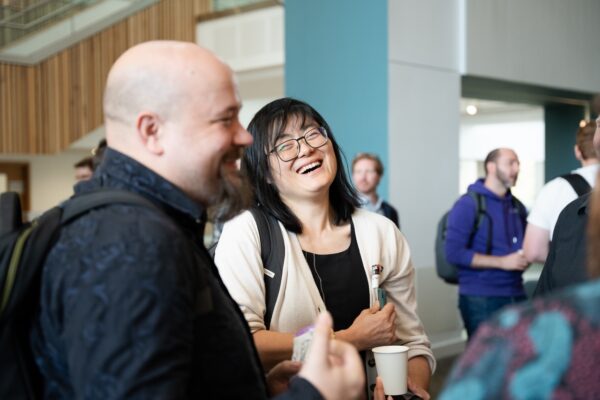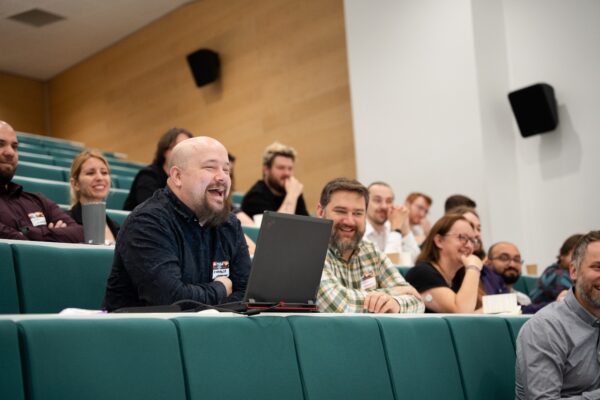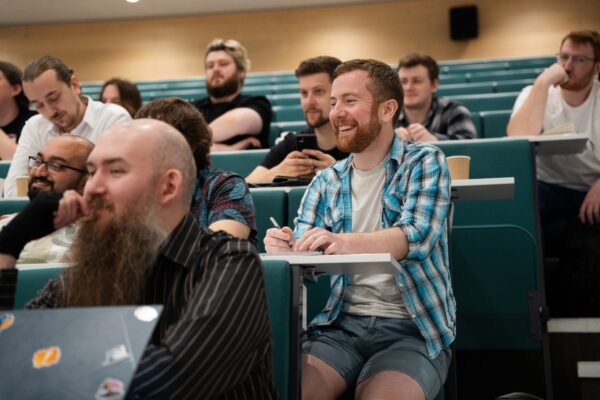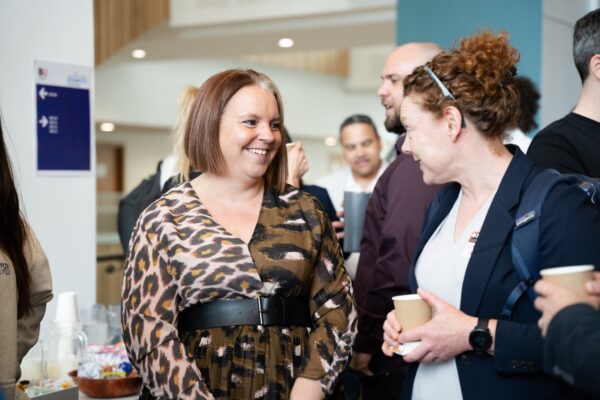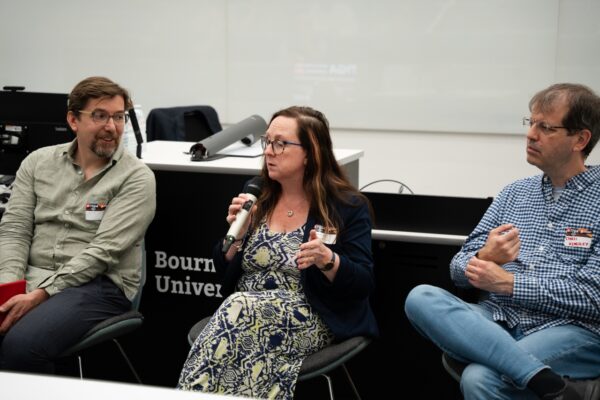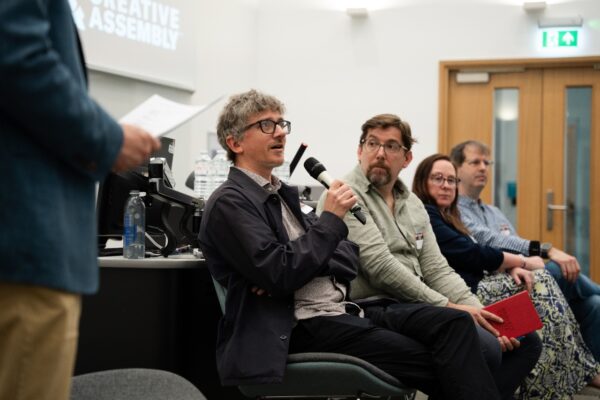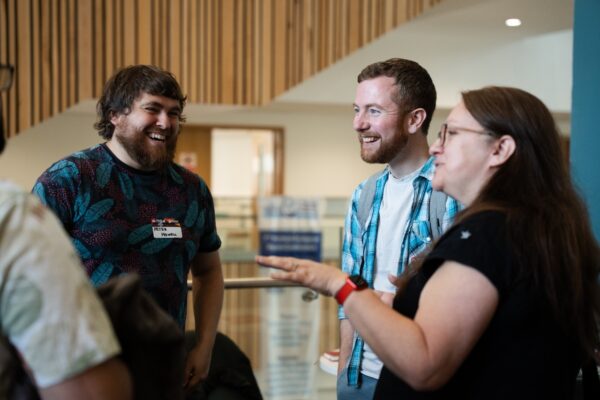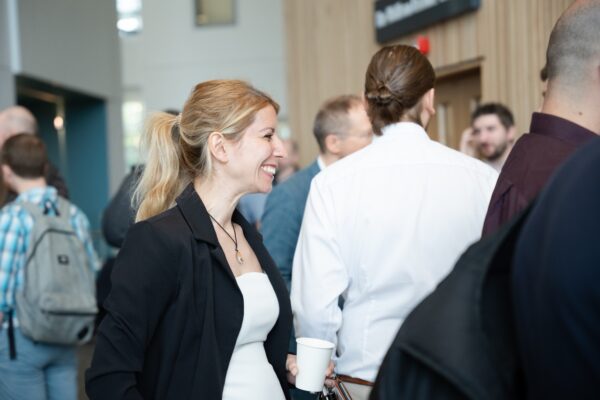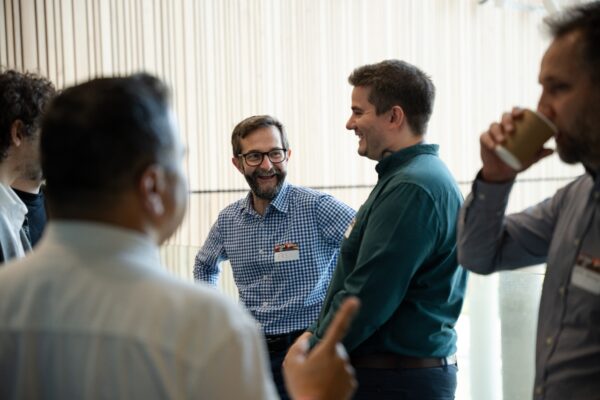TIGA’s Game Education Conference 2025 will once again comprise a full day of keynotes and panel discussions, providing a vital forum for educators and studios to exchange knowledge and ideas to address key challenges, including skill needs, graduate employability, excellence in research and teaching and studio spinouts from higher education.
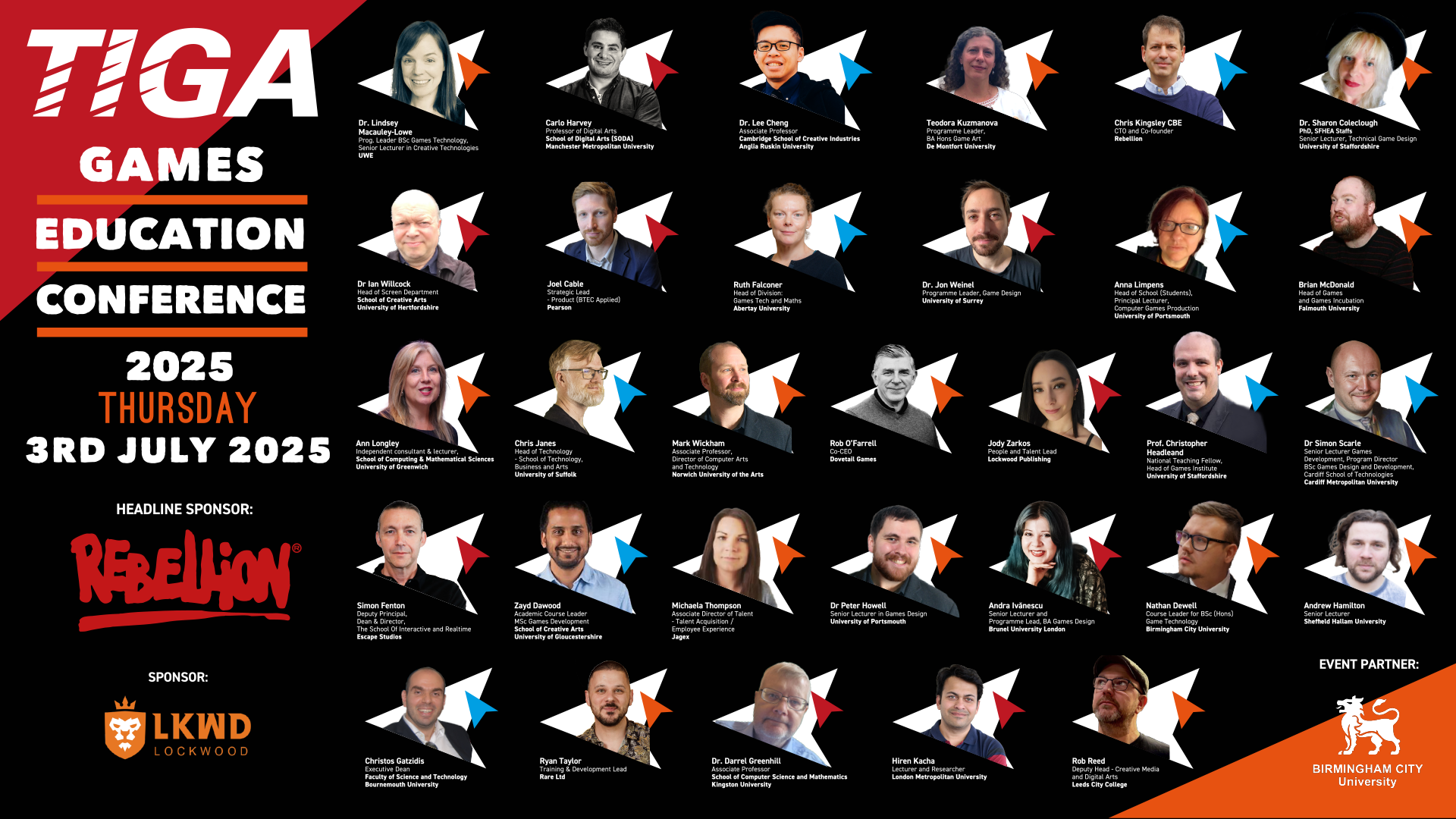
Agenda:
- 10.00 – 10.30: Registration, networking and refreshments
- 10.30 – 10.35: Introduction – Dr. Richard Wilson OBE, TIGA CEO
- 10.35 – 10.40: Nathan Dewell, Course Leader for BSc (Hons) Game Technology
- 10.40 – 10.50: Q&A with Chris Kingsley CBE, CTO and Co-founder, Rebellion
- 10.50 – 11.20: Maximising graduate employment opportunities
- Speakers:
- Dr Ian Willcock, Head of Screen Department, School of Creative Arts, University of Hertfordshire.
- Teodora Kuzmanova, Programme Leader, Ba Hons Game Art, De Montfort University.
- Zayd Dawood, Academic Course Leader in MSc Games Development, School of Creative Arts, University of Gloucestershire.
- Dr. Lindsey Macauley-Lowe, Programme Leader BSc Games Technology, Senior Lecturer in Creative Technologies, UWE.
- 11.20 – 11.30: TIGA course accreditation
- Speaker:
- Mark Wickham, Associate Professor, Director of Computer Arts and Technology, Norwich University of the Arts.
- Speaker:
- 11.30 – 11.45: Coffee break and networking
- 11.45 – 11.55: Fail Better: Designing Modules Where Failure Is The Point.
- Speaker:
- Nathan Dewell, Course Leader for BSc (Hons) Game Technology, BCU
- Speaker:
- 11.55 – 12.25: Skills requirements for the games industry – 2025 & beyond.
- Speakers:
- Rob O’Farrell, Co-CEO, Dovetail Games
- Michaela Thompson, Associate Director of Talent – Talent Acquisition / Employee Experience, Jagex
- Neil McKenna, Lead External Producer, Slitherine Software
- Jody Zarkos, People and Talent Lead, Lockwood Publishing
- Ryan Taylor, Training & Development Lead, Rare Ltd
- 12.25 – 12.35: Let Them Make Games: Rethinking Game Dev Education
- Speaker:
- Lloyd Savickas, Associate Director of Digital Media and Games Technology, UWE.
- 12.35 – 1.05: Incubators within universities for start-ups.
- Speakers:
- Brian McDonald, Head of Games and Games Incubation, Falmouth University.
- Dr Peter Howell, Senior Lecturer in Games Design, University of Portsmouth.
- Dr Darrel Greenhill, Associate Professor, Course Leader Game Development, School of Computer Science and Mathematics, Kingston University.
- Iz Head, Co-founder, Moss Monkey Games
- Alfie Wright, Co-founder, Moss Monkey Games
- 1.05 – 1.45: Lunch and networking break.
- 1.45 – 1.55: Excellence in games research, innovation and teaching
- Speaker:
- Prof. Christopher Headleand, National Teaching Fellow, Head of Games Institute at University of Staffordshire.
- Speaker:
- 1.55 – 2.25: Excellence in games research, innovation and teaching
- Speakers:
- Carlo Harvey, Professor of Digital Arts, School of Digital Arts (SODA) at Manchester Metropolitan University.
- Dr. Lee Cheng, Associate Professor, Cambridge School of Creative Industries, Anglia Ruskin University
- Andra Ivănescu, Senior Lecturer and Programme Lead for the BA Games Design at Brunel University London.
- Prof. Christopher Headleand, National Teaching Fellow, Head of Games Institute at University of Staffordshire.
- Speakers:
- 2.25 – 2.35: Supporting Diversity, Inclusivity and Innovation in Games Degrees
- Speaker:
- Dr. Jon Weinel, Programme Leader for Game Design, University of Surrey.
- Speaker:
- 2.35 – 3.05: Equality, diversity and inclusion
- Speakers:
- Dr. Sharon Coleclough – PhD, SFHEA Staffs, Senior Lecturer, Technical Game Design at University of Staffordshire.
- Chris Janes, Head of Technology – School of Technology, Business and Arts at the University of Suffolk.
- Dr. Jon Weinel, Programme Leader for Game Design, University of Surrey.
- Ann Longley, Visiting Lecturer, University of Greenwich.
- Speakers:
- 3.05 – 3.15: FE colleges and level 3 challenges
- Speaker:
- Joel Cable, Strategic Lead – Product (BTEC Applied), Pearson.
- Speaker:
- 3.15 – 3.45: Panel discussion: FE colleges and level 3 challenges
- Speakers:
- Rob Reed, Deputy Head of Department, Leeds City College.
- Joel Cable, Strategic Lead – Product (BTEC Applied), Pearson.
- Brett Clarke, Head of Curriculum – Creative Industries, North Hertfordshire College.
- Speakers:
- 3.45 – 4.00: Networking and refreshments.
- 4.00 – 4.10: Internships, placements and industrial secondments
- Speaker:
- Anna Limpens, Head of School (Students), Principal Lecturer – Computer Games Production at University of Portsmouth.
- Speaker:
- 4.10 – 4.40: Panel discussion – Internships, placements and industrial secondments.
- Anna Limpens, Head of School (Students), Principal Lecturer – Computer Games Production at University of Portsmouth.
- Hiren Kacha, Lecturer and Researcher at London Metropolitan University.
- Andrew Hamilton, Senior Lecturer, Sheffield Hallam University
- Professor. Christos Gatzidis, Executive Dean of the Faculty of Science and Technology, Bournemouth University
- 4.40 – 5.10: Designing a new games course panel
- Speakers:
- Dr Peter Howell, Senior Lecturer in Games Design, University of Portsmouth.
- Dr Simon Scarle, Senior Lecturer in Games Development Program Director for BSc Games Design and Development, Cardiff School of Technologies, Cardiff Metropolitan University.
- Simon Fenton, Deputy Principal, Escape Studios
- Speakers:
- 5.10 – 5.15: Closing remarks – Dr. Richard Wilson OBE, TIGA CEO
- 5.10 – 6.00: Networking
TIGA’s Conference, hosted at Birmingham City University, will discuss a range of subjects, including:
- Skills requirements in the games industry in 2025 and beyond
- Maximising graduate employment opportunities
- Incorporating business and entrepreneurship acumen in course delivery
- Incubators and accelerators within universities for start-up studios
- How education can build better links with the industry
- Excellence in games research, innovation and teaching
- Equality, Diversity & Inclusion
- Further Education and Level 3 challenges
- Internships, placements and industrial secondments
- Designing a new games course
- TIGA Education Accreditation
Tickets are free for TIGA members and are priced at £250 for non-members. Your ticket includes access to the full day of conference sessions, lunch, refreshments, networking.
Confirmed speakers:
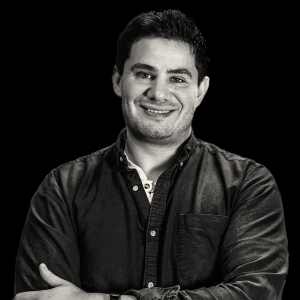
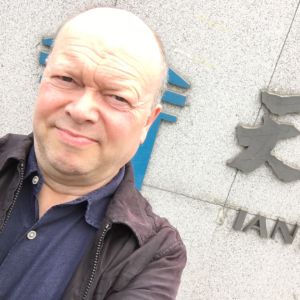
His musical, multimedia and digital-performance pieces have been presented internationally and he has received many prizes and scholarships. He has collaborated on a number of large-scale digital performance and mixed-media installation projects and in 2012 completed his doctorate in Multimedia and Live Performance at De Montfort University. His research interests include immersive experience design, contemporary creative digital practice, and media production methodologies including the effects of AI on employment, working patterns in the creative industries, and on creative pedagogy.
For more details, please see www.willcock.org

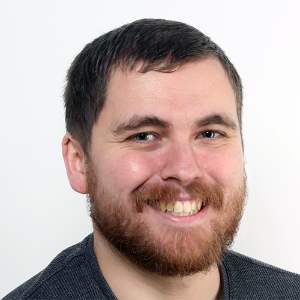

I teach the C++ programming language, games programming, optimisation techniques and computer architecture. In my spare time I develop my own cross platform game engine that I use as part of my teaching.
I am part of the lecturing staff responsible for Steel Minions, Sheffield Hallam's game studio managed by lecturers, staffed by students.
Currently leading a team making a programming teaching tool for first year UG students and a team of final year Masters students to publish there PS5 game on the PlayStation Store.



Since founding Rebellion in 1992, Chris and his brother, Jason, have produced more than 100 games, over 20 of which have been worldwide number one hits. Rebellion’s critically acclaimed games include: Aliens Vs Predator; The Simpsons Game; Star Wars Battlefront; Zombie Army; and Battlezone. The studio’s flagship Sniper Elite games series has sold more than 40 million units worldwide. Rebellion directly employs 600 people and engages another 500 contractors. The company contributes to regional economic growth with studios based in Oxford, Warwick, Liverpool and Wakefield. Rebellion is also the largest independent games developer in the UK. Jason and Chris have also expanded Rebellion into comics, books, film and television and tabletop gaming:
Comics: Rebellion has the rights to comic classics including 2000 AD (featuring Judge Dredd, Strontium Dog, Slaine and Rogue Trooper); Charley’s War; Billy Bunter; Sexton Blake; Misty; Tammy; Battle; The Spider; and Roy of the Rovers.
Books: Jason and Chris have published several hundred science fiction and fantasy books via Abaddon Books and Solaris Books.
Film and Television: In 2018 Rebellion opened its state-of-the-art Rebellion Film and TV studios in Didcot, releasing the first Rebellion-produced feature film, Schools Out Forever, in 2021. Jason also presents and produces the Modern History TV channel on YouTube.
Tabletop Gaming: Rebellion publishes board games and miniature figures.



Teodora has worked on a 3D reconstruction of the first British spacecraft, sent to Mars in 2003 (Beagle 2) and the development of a virtual simulation of its deployment aimed at finding out the reasons for the spacecraft’s loss of signal - the practice-based project was a collaboration with the University of Leicester, with satellite images provided by NASA.

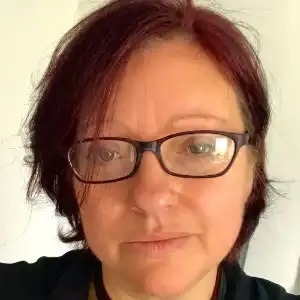
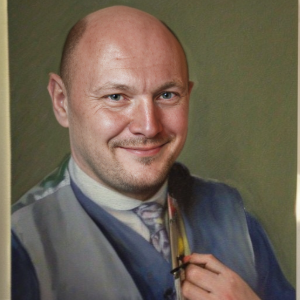
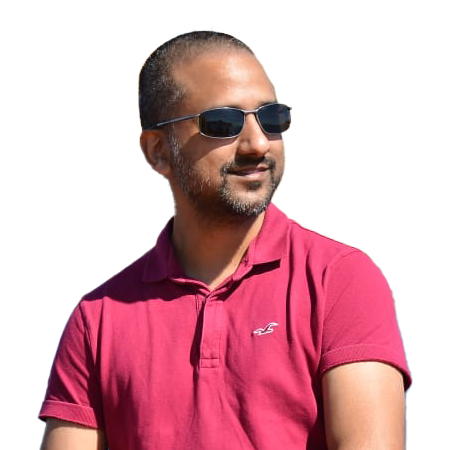
I have industry experience as an eLearning courseware developer, media developer and mobile app. developer – developing for both iOS and Android platforms. I have also worked for Content Master delivering high quality training materials for various blue-chip companies, including Microsoft, IBM, Orange and T-Mobile.


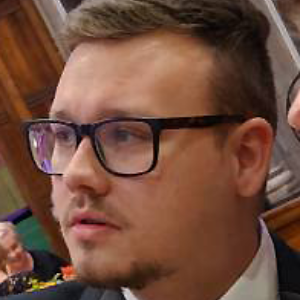
Nathan has a strong background in Unity and Unreal Engine, and is passionate about helping students learn through experimentation and failure. He also champions initiatives that blend academic teaching with enterprise and industry outreach, helping bridge the gap between education and the evolving games industry.
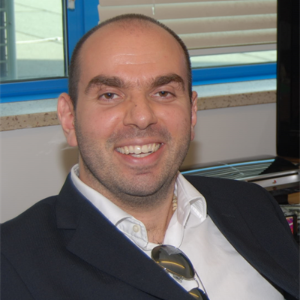

After graduating from a Fine Art background, Simon joined Bits Studios and later moved on to Sony Computer Entertainment Europe for 10 years, designing and creating environments, Art Direction, characters and leading teams at a senior level.
He worked in senior lead roles on nine published titles including Total NBA ’97, This is Football,Getaway, Black Monday, Kinetic, Kinetic Combat and Sony Playstation Home. During his career he has also created bespoke courses for corporate clients in the video games and TV sectors such as Rare, Big Big Studios and the BBC as well as Unreal Engine training for various clients including large scale initiatives for Visual effects industry professionals.

Mark's work employs a range of artistic and explorative technical creation practices, focusing on the design, sculpture, rigging, and animation of digital characters for game and film. He has over 25 years’ experience creating digital art and is informed by an understanding of technical constraint in computing, combined with an enthusiasm for creative problem solving to enhance production methodologies.
Mark is an Educational Adviser to TIGA, The Independent Game Developers’ Association, a trade association for the video game industry.

Professor Headleand's research interests encompass Virtual Reality, Serious Games, Artificial Intelligence and Student Engagement. He has a background in design and education, holding a BSc in Design Education, an MSc in Computer Systems, and a PhD in Artificial Intelligence from Bangor University. His doctoral research focused on behaviour simulation in video games.
Beyond academia, Professor Headleand has entrepreneurial experience, having founded two companies: a design and software startup and a VR video games studio. He has collaborated with various international organizations, including the American Museum of Natural History in New York.
Throughout his career, Professor Headleand has been a proponent of pragmatic and ethical digital innovation. His work in games-based education and simulation is recognized both nationally and internationally.
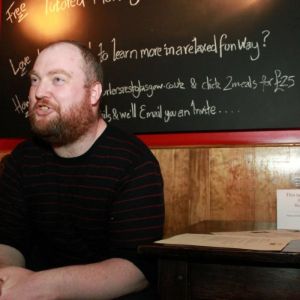

Prior to his appointment as Head of Technology, Chris was the Course Leader for Games Development at the university. His background includes experience as a gameplay programmer, where he contributed to various educational and serious games. He gained recognition as the programmer and project lead for ``Hidden: Source,`` an award-winning modification of Half-Life 2.

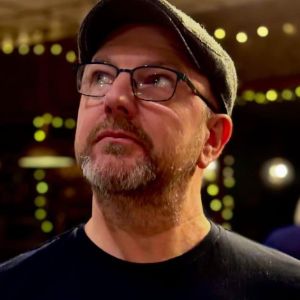
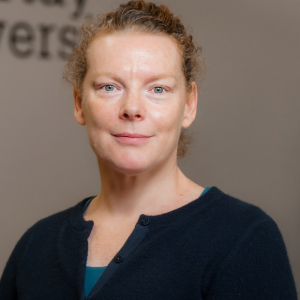
My innovations include developing the first theoretical model and visualisation framework for indeterminate organisms. These modelling and visualisation skills have been applied across disciplines to develop interactive visual simulations of urban sustainability, heat loss and gain from built environment and precision agriculture. I am interested in applying games technology including games engines, graphics hardware and related infrastructure, to develop playable models of complex systems. Areas of application are the Water-Energy-Food-nexus, Microbial Ecology and Health and Social Care.
I am interested in the broader applications of game technology to develop intuitive systems models. I am an editorial board member for International Journal of Games Technology & Scientific Reports. I have over 70 peer reviewed articles and have secured significant research income. I am a Co-I and PI on several RCUK and charity-funded grants.


Beyond her role in the game development programme, Ann designs and delivers Women in STEM outreach activities, including The Greenwich Innovation Challenge — where students create prototypes using physical materials like markers, paper, and play-doh rather than technology. Ann recently won the Officer's Hero Award (Student Led Teaching Awards) for supporting Greenwich Student Union Officers in empowering students, championing engagement, equality and diversity in education.
As a community lead for the British Interactive Media Association (BIMA), Ann collaborates with BIMA members to design and deliver BIMA’s Next Generation Digital Leaders Work Experience Programme.
TIGA CEO Dr Richard Wilson OBE, said:“TIGA’s Games Education Conference is focused on bringing developers and education together to drive excellence in games education. With panels and keynotes on a range of topical issues, our Conference is designed to spark conversation and debate, and to provide a platform for knowledge exchange and creating new opportunities. I would like to thank Birmingham CIty University for generously hosting the TIGA Games Education Conference. We look forward to uniting some of the UK games sector’s most respected academics and industry executives for a full day of discussion and networking on July 3rd. Get your tickets now!”
“We’re excited to be hosting the TIGA Games Education conference this year and welcoming educators and industry to the STEAMhouse Innovation Centre at Birmingham City University. Like many educators, employability is a key component of what we do, continually striving to deliver authentic game production experiences with curriculums and tools that reflect the industry.”
To see last year’s education conference, please visit here: https://tiga.org/events/tiga-games-education-conference-2024
TIGA also has a limited number of Event Partner packages available. Contact suzi@tiga.org and chris@tiga.org for details.

